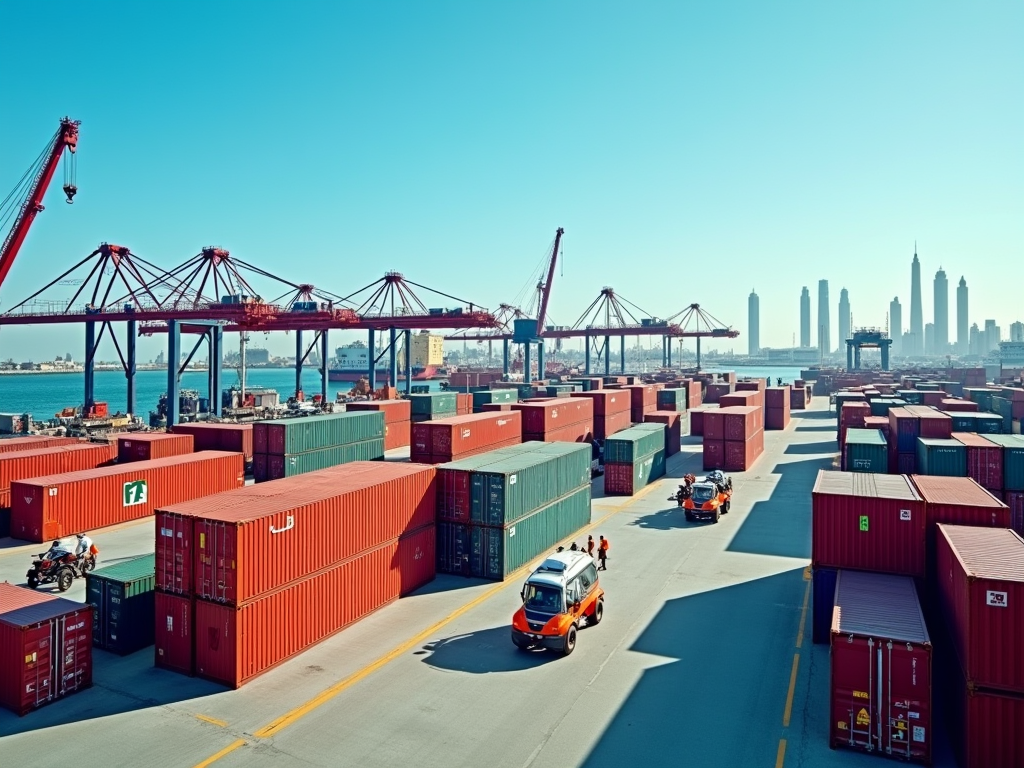Starting an import/export business in Dubai can be a lucrative endeavor due to its strategic geographical location and robust economy. With a well-established trading infrastructure and supportive government regulations, Dubai serves as a global trading hub. In this article, we will outline the essential steps and considerations for starting your own import/export business in this dynamic market. We will also touch upon the key documentation, market research, and networking opportunities crucial for success.
Understanding the Market

Before diving into the mechanics of starting your import/export business, it is imperative to have a comprehensive understanding of the market landscape in Dubai. This involves conducting thorough market research to identify lucrative niches, potential suppliers, and buyers. Dubbed one of the world’s leading trading hubs, Dubai offers immense opportunities in various sectors, including electronics, textiles, food, and automotive parts.
To navigate effectively, consider the following steps:
- Identify market trends and demands.
- Analyze local competitors and their product offerings.
- Explore regional trade agreements that could benefit your business.
- Assess consumer behavior to tailor products to local preferences.
- Evaluate logistics and distribution channels to optimize operations.
Legal Requirements and Licensing

Once you have identified your niche and completed thorough market research, the next step is understanding the legal requirements and obtaining the necessary licenses. Dubai’s regulatory framework is designed to support business formation, though compliance with local laws is essential for sustainability. Here are some key steps to follow:
- Choose a business structure: Determine whether to establish a sole proprietorship, partnership, or limited liability company.
- Secure a trade license: Apply for and obtain a trade license specific to your import/export activities.
- Register with the Department of Economic Development (DED): This step formalizes your business presence in Dubai.
- Determine customs requirements: Familiarize yourself with customs regulations to ensure smooth international transactions.
- Open a business bank account: Choose a bank that offers favorable terms for international trade.
Setting Up Logistics
Logistics form a vital component of any import/export business since it directly influences your operational efficiency and cost structure. Establishing a robust logistics framework will help you manage inventory, transportation, and distribution. Here’s how to set it up:
Begin with these key considerations:
- Identify reliable shipping partners and freight forwarders who understand the complexities of international shipping.
- Use technology to streamline logistics management: Invest in software solutions for inventory tracking, order management, and shipment tracking.
- Consider warehousing options: Decide whether you will maintain inventory in a warehouse in Dubai or drop ship from suppliers abroad.
- Focus on compliance: Ensure that all logistics partners comply with local and international regulations.
- Evaluate insurance options: Protect your goods during transit with suitable cargo insurance.
Building a Network
Networking is crucial for the growth of your import/export business. Establishing strong relationships can lead to valuable partnerships and opportunities. Start by connecting with local business councils, trade associations, and chambers of commerce in Dubai. Attend trade shows, exhibitions, and business seminars to meet potential clients and suppliers.
Moreover, consider the following networking strategies:
- Join industry-specific forums and online groups for valuable insights.
- Collaborate with complementary businesses to enhance service offerings.
- Engage with government export promotion agencies for resources and guidance.
- Leverage social media platforms for brand visibility and outreach.
- Seek mentorship from established entrepreneurs in the field.
Conclusion
Starting an import/export business in Dubai requires careful planning, thorough market understanding, and strategic networking. By comprehensively researching the market, adhering to legal requirements, establishing robust logistic setups, and building a strong network, you will be well-equipped to thrive in this vibrant business landscape. It is essential to stay flexible and responsive to market changes, which will allow you to adapt and grow your enterprise successfully.
Frequently Asked Questions
1. What are the startup costs for an import/export business in Dubai?
The startup costs can vary widely based on factors such as the type of products you deal with, licensing fees, and logistical arrangements. On average, you may need anywhere from AED 10,000 to AED 100,000 to get started.
2. Do I need a local partner to start an import/export business in Dubai?
If you plan to operate as a mainland company, having a local partner is mandatory. However, if you choose to operate in a free zone, 100% ownership is allowed.
3. What products are popular for import/export in Dubai?
Categories such as electronics, fashion apparel, construction materials, and food products are highly sought after in Dubai’s import/export market.
4. How can I find suppliers for my business?
You can find suppliers through online marketplaces, trade shows, supplier directories, or by networking in industry-specific associations or chambers of commerce.
5. Are there any taxes on import/export businesses in Dubai?
Dubai has a favorable tax regime with no corporate tax on most businesses. However, imported goods may be subject to a 5% customs duty.







